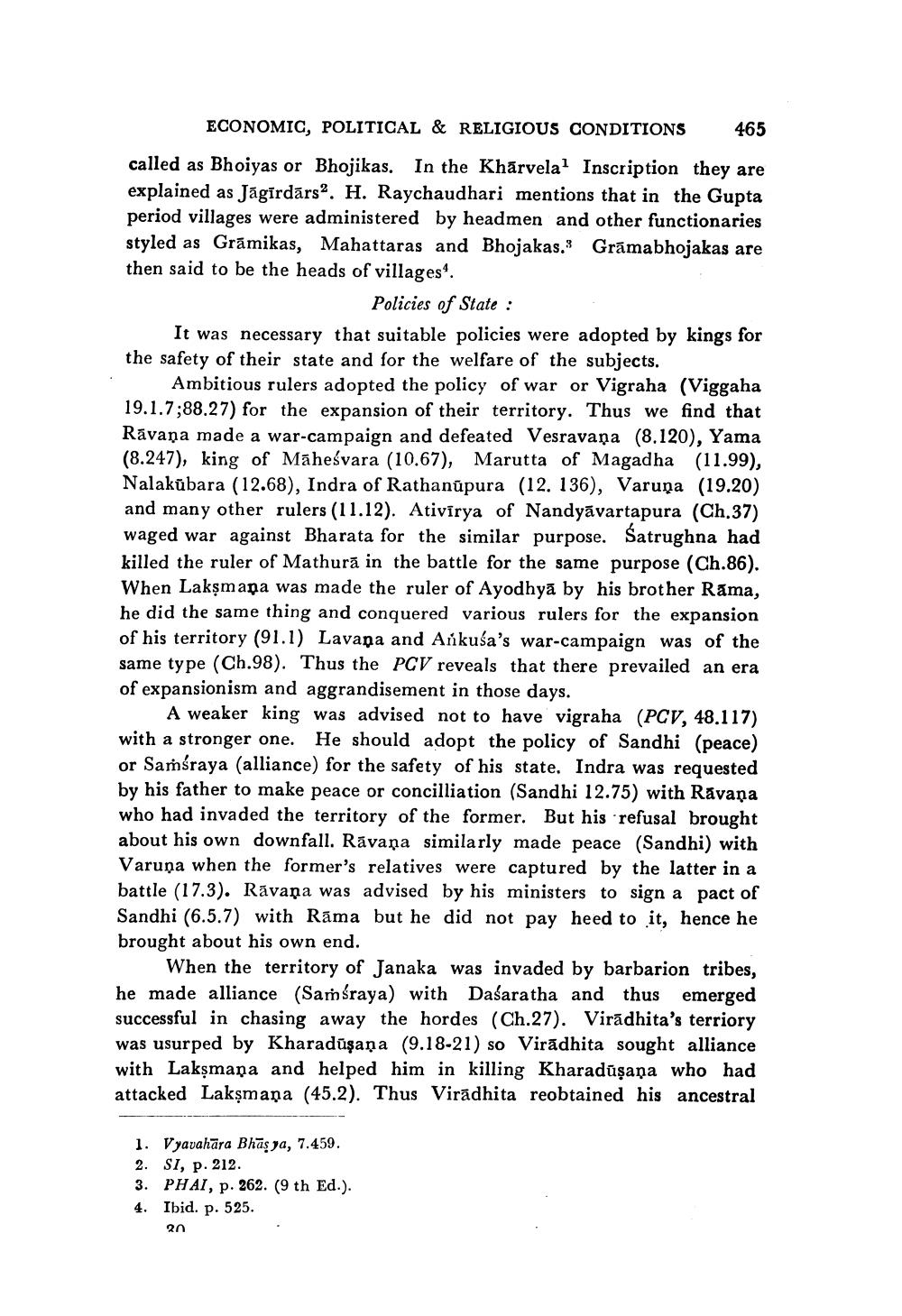________________
ECONOMIC, POLITICAL & RELIGIOUS CONDITIONS
465
called as Bhoiyas or Bhojikas. In the Khārvela? Inscription they are explained as Jāgirdārs. H. Raychaudhari mentions that in the Gupta period villages were administered by headmen and other functionaries styled as Grāmikas, Mahattaras and Bhojakas. Grāmabhojakas are then said to be the heads of villages".
Policies of State : It was necessary that suitable policies were adopted by kings for the safety of their state and for the welfare of the subjects.
Ambitious rulers adopted the policy of war or Vigraha (Viggaha 19.1.7;88.27) for the expansion of their territory. Thus we find that Rávaņa made a war-campaign and defeated Vesravana (8.120), Yama (8.247), king of Māheśvara (10.67), Marutta of Magadha (11.99), Nalakūbara (12.68), Indra of Rathanūpura (12. 136), Varuna (19.20) and many other rulers (11.12). Ativīrya of Nandyāvartapura (Ch.37) waged war against Bharata for the similar purpose. Satrughna had killed the ruler of Mathurā in the battle for the same purpose (Ch.86). When Lakşmapa was made the ruler of Ayodhyā by his brother Rama, he did the same thing and conquered various rulers for the expansion of his territory (91.1) Lavana and Ankusa's war-campaign was of the same type (Ch.98). Thus the PCV reveals that there prevailed an era of expansionism and aggrandisement in those days.
A weaker king was advised not to have vigraha (PCV, 48.117) with a stronger one. He should adopt the policy of Sandhi (peace) or Samsraya (alliance) for the safety of his state. Indra was requested by his father to make peace or concilliation (Sandhi 12.75) with Ravana who had invaded the territory of the former. But his 'refusal brought about his own downfall. Rāvana similarly made peace (Sandhi) with Varuna when the former's relatives were captured by the latter in a battle (17.3). Rāvana was advised by his ministers to sign a pact of Sandhi (6.5.7) with Rāma but he did not pay heed to it, hence he brought about his own end.
When the territory of Janaka was invaded by barbarion tribes, he made alliance (Samśraya) with Dasaratha and thus emerged successful in chasing away the hordes (Ch.27). Virādhita's terriory was usurped by Kharadūşaņa (9.18-21) so Virādhita sought alliance with Laksmana and helped him in killing Kharadūşana who had attacked Lakşmana (45.2). Thus Virādhita reobtained his ancestral
1. Vyavahāra Bhāsya, 7.459. 2. Si, p. 212. 3. PHAI, p. 262. (9 th Ed.). 4. Ibid. p. 525.
20




